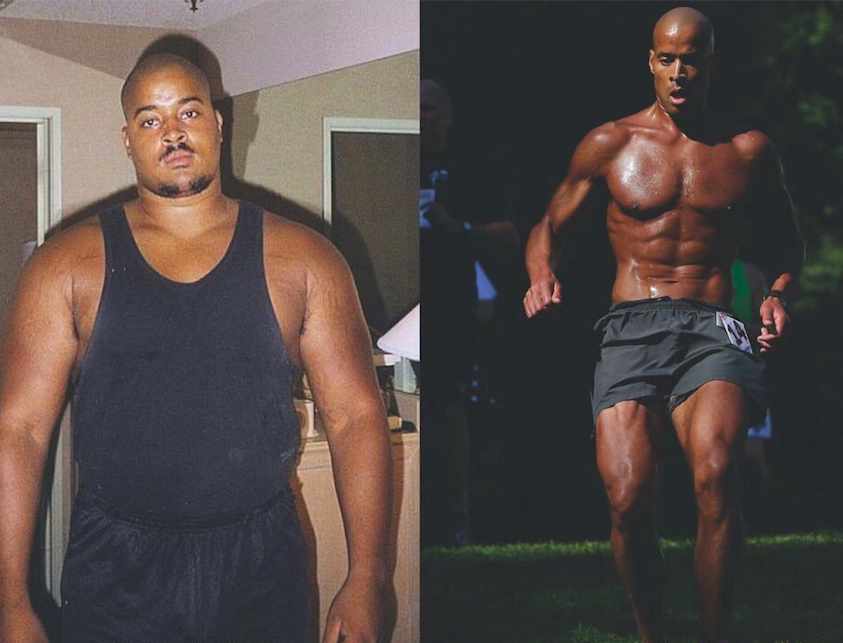
✨ I spoke at @teachable's summit about how to build an engaged online community.
Here are the 3 practical tactics many successful people have used to build loyal communities👇
Here are the 3 practical tactics many successful people have used to build loyal communities👇
First, let's make a distinction between audience & community.
Audience is the overall group of people who may be interested in the content you produce, but your community is the group that devours your content while also interacting with you on a regular basis
Audience is the overall group of people who may be interested in the content you produce, but your community is the group that devours your content while also interacting with you on a regular basis
Author Chris Brogan once said: “The difference between an audience and a community is which way the chairs are facing.”
Ask yourself: Am I communicating in one direction where people are listening to me or are the conversations often dynamic and happening in a circle?
Ask yourself: Am I communicating in one direction where people are listening to me or are the conversations often dynamic and happening in a circle?
Tactic #1: Build Trust
Think about a relationship in your life where you 100% trust someone who is incredibly inconsistent. You can’t.
That’s because we don’t trust people — whether it’s in work, business or relationships — who constantly break their promises.
Think about a relationship in your life where you 100% trust someone who is incredibly inconsistent. You can’t.
That’s because we don’t trust people — whether it’s in work, business or relationships — who constantly break their promises.
OK, you think, that's really obvious. Of course I'm not going to trust people who don't keep their word.
Yet I hear this all the time: "I want to start a newsletter, so I'm going to publish it every week, but then I have a vacation coming up, so I'll have to skip that week."
Yet I hear this all the time: "I want to start a newsletter, so I'm going to publish it every week, but then I have a vacation coming up, so I'll have to skip that week."
Take it from me: Please do not start anything if the phrase "whenever I have time" is in your vocabulary when you refer to that thing.
👏There 👏 is 👏no 👏community 👏without 👏trust 👏
👏There 👏 is 👏no 👏community 👏without 👏trust 👏
Reid Hoffman often tells entrepreneurs that the formula for gaining trust with the user or consumer goes like this:
Trust = consistency + time.
Community and trust are things that are earned.
Trust = consistency + time.
Community and trust are things that are earned.
To build a community, you first need to earn your consumers/readers/users' trust.
How? Choose a regular cadence of publishing your newsletter or your blog or your instagram photo and stick to it.
Remember, it's easier to speed up than slow down.
How? Choose a regular cadence of publishing your newsletter or your blog or your instagram photo and stick to it.
Remember, it's easier to speed up than slow down.
Tactic #2: Find your most loyal people.
The key to building any community is that you need people who are ride or die.
These are the people that love your content, they are very active with you on social media, and they would follow you from one project or job to another.
The key to building any community is that you need people who are ride or die.
These are the people that love your content, they are very active with you on social media, and they would follow you from one project or job to another.
When you think about the most rabid online communities, who do you think of?
Beyonce’s Beyhive. Taylor Swift’s Swifties. Lady Gaga’s Little Monsters.
These are all devoted cult-like fan communities.
Beyonce’s Beyhive. Taylor Swift’s Swifties. Lady Gaga’s Little Monsters.
These are all devoted cult-like fan communities.
Let's start with Lady Gaga.
When she was starting her career as an artist, she was working with talent manager Troy Carter.
Her and Troy developed a philosophy called "The First 50," which referred to finding the first 50 most loyal fans.
When she was starting her career as an artist, she was working with talent manager Troy Carter.
Her and Troy developed a philosophy called "The First 50," which referred to finding the first 50 most loyal fans.

Lady Gaga first became popular in NYC's LGBTQ community, so she played 4 to 5 clubs/night so her most loyal fans felt connected to her on a personal level.
The ties became stronger, and ultimately, her “superfan” base snowballed into hundreds of millions of fans around the world
The ties became stronger, and ultimately, her “superfan” base snowballed into hundreds of millions of fans around the world
Taylor Swift does something similar although she's done it later in her career than in the beginning, which is an interesting approach.
Swift *rewards* her most loyal fans.
How?
Swift *rewards* her most loyal fans.
How?
She makes her fans feel like they're the most important people.
In the lead up to albums 1989 & Reputation, she created a series of events called "Secret Sessions" where she personally scoured the internet for her most loyal fans & invited them to a listening session in her home
In the lead up to albums 1989 & Reputation, she created a series of events called "Secret Sessions" where she personally scoured the internet for her most loyal fans & invited them to a listening session in her home

She made them cookies, played her newest songs before their release, and took photos with each of them.
Another time, she chose a number of fans and sent them personalized presents.
She even surprises her fans at their own weddings.
Another time, she chose a number of fans and sent them personalized presents.
She even surprises her fans at their own weddings.

Those small acts of goodwill are the key to humanizing your brand and building lifelong loyalty.
Find your first, most loyal 50 fans and over-serve them.
They will be the earliest and best spokespeople for your brand.
Find your first, most loyal 50 fans and over-serve them.
They will be the earliest and best spokespeople for your brand.
Tactic #3: Form an emotional connection
The key to building a successful personal brand is to build a strong emotional connection with the consumer.
Kris Jenner says, "The people who follow us today are the people who became emotionally invested in the family."
The key to building a successful personal brand is to build a strong emotional connection with the consumer.
Kris Jenner says, "The people who follow us today are the people who became emotionally invested in the family."
Kim Kardashian has transitioned from celebrity assistant to reality TV star to entrepreneur to an advocate for prison reform.
Their TV show is about to end, but people will continue to follow the family because they have formed an emotional connection that is industry agnostic.

Their TV show is about to end, but people will continue to follow the family because they have formed an emotional connection that is industry agnostic.


The key is that if you form a strong connection with your community, you can re-invent yourself multiple times over without the fear of your community members abandoning you.
Another example of this emotional connection done well is Brandon Stanton, the creator of Humans of New York.
He shared a multi-part profile narrative on Stephanie, a 76-year-old woman who was a burlesque dancer named "Tanqueray" in the 1970s.
Her story CAPTIVATED the country.
He shared a multi-part profile narrative on Stephanie, a 76-year-old woman who was a burlesque dancer named "Tanqueray" in the 1970s.
Her story CAPTIVATED the country.

Initially, Stanton was working on creating a podcast, which would detail Stephanie's life.
When the pandemic started, the duo continued their conversations over the phone.
Stephanie's health took a turn for the worse, & Stanton wanted to help.
He turned to the community.
When the pandemic started, the duo continued their conversations over the phone.
Stephanie's health took a turn for the worse, & Stanton wanted to help.
He turned to the community.

Stanton created a GoFundMe for Stephanie.
It ended up raising $2.7 million from a total of 128,000 different members of HONY's community who were touched by Stephanie's story.
Total strangers mobilized to help one fellow human.
It ended up raising $2.7 million from a total of 128,000 different members of HONY's community who were touched by Stephanie's story.
Total strangers mobilized to help one fellow human.
If you lead with your personality, the authenticity will shine through your work and you'll attract like-minded people in your community.
Remember, community always start small, but it could grow to be so big that it's activated to do something very, very good in the world.
Remember, community always start small, but it could grow to be so big that it's activated to do something very, very good in the world.
To recap:
1. Build trust by being consistent & honoring the promise you made to your community in the beginning
2. Find your first, most loyal 50 fans and over-serve them.
3. Form an emotional connection with your reader, consumer or user.
1. Build trust by being consistent & honoring the promise you made to your community in the beginning
2. Find your first, most loyal 50 fans and over-serve them.
3. Form an emotional connection with your reader, consumer or user.
To join the best community on the internet, sign up here: theprofile.substack.com
• • •
Missing some Tweet in this thread? You can try to
force a refresh









